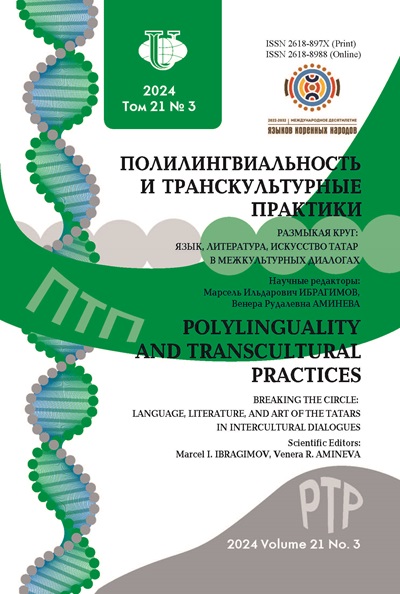Search
Issue
Title
Authors
|
Eiassu S.T., Lapteva M.D. |
|
Mikhienko A., Oshchepkova E.S., Kovyazina M.S. |
|
Bitokova M.V., Kankulova A.S. |
|
Nagumanova E.F., Shemshurenko O.V. |
|
Kobylko J. |
|
Antonov Y.G., Kabanova J.V. |
|
Barannikova T.B., Suleimanova F.N. |
|
Mirkhayev R.F. |
|
Anikina M.N. |
|
Mosina N.M. |
|
Suleimanova D.D. |
|
Lutfullina G.F. |
|
Vasilyeva N.M. |
|
Nikolaev E.R. |
|
Shishlova E.E., Tvanba L.R. |
|
Fayzrakhmanova Y.S. |
|
Afanasieva N.D., Zakharchenko S.S., Mogileva I.B. |
|
Bereznyatskaya M.A., Denisenko A.V., Kalinina J.M. |
|
Nimaeva E.Z. |
|
Kovaleva A.V. |
|
Zaitseva I.P. |
|
Petrov A.A. |
|
Belyaeva A.P., Moskovkin L.V., Tskhovrebov A.S. |
|
Gilemshin F.F. |
|
Atabieva L.K. |
|
Sinyachkina N.L. |
|
Zharkova E.H., Nazartseva E.A. |
|
Nuradilov S.S. |
|
Wenqian Zang -. |
|
Vladimirova T.E. |
|
Dzhusupov M. |
|
Balasanyan L.G. |
|
Lichačiova A.B. |
|
Safarov M.A. |
|
Vladimirova T.E. |
|
Lavitski A.A. |
|
Lugovskaya E.G. |
|
Kucaeva M.V. |
|
Grinberg S.A. |
|
Lebedeva I.L. |
|
Minnullin B.K. |
|
Urkhanova R.A. |
|
Ivshin L.M. |
|
Sharina S.I. |
|
Ivshin L.M. |
|
Gavrilov A.D. |
|
Ketenchiev M.B., Akhmatova M.A., Dodueva A.T. |
|
Popova M.V. |
|
Kalinin S.S. |
|
Rudenko-Morgun O.I., Zhindaeva A.G. |
|
Kuchukova Z.A., Bauaev K.K. |
|
Khilkhanova E.V. |
|
Dzhusupov M. |
|
Dianova L.P. |
|
Bobrova S.E. |
|
Turinova O.O. |
|
Maslova V.A. |
|
Fierman W. |
|
Wenqian Zang -. |
|
Ismailova H.E., Arsenieva I.A. |
|
Smagulova J. |
|
Kalinina V.V. |
|
Kochai Mir Sahib Jan -. |
|
Lavitski A.A. |
|
Medvedeva N.V. |
|
Mamontov A.S., Stolyarova A.G. |
|
Rostova E.G. |
|
Alimova M.V. |
|
Frolkova Y.A. |
|
Dorokhova M.V., Sverdlova N.A. |
|
Bereznyatskaya M.A. |
|
Elagina R.I. |
|
Shustikova T.V., Kulakova V.A., Smirnova S.V. |
|
Odintsova I.V. |
|
Turinova O.O. |
|
Tupeyko D.V., Baghana J. |
|
Khalilzadeh A.Z. |
|
Zakoyan L.M. |
|
Vasil’eva A.A. |
|
Bakhshiyeva F.S. |
|
Gadzhieva A.A. |
|
Tikhomirova E.E. |
|
Li Chuan -. |
|
Alexeeva I.S. |
|
Mishina N.Y., Antonov E.A. |
|
Smirnova A.I. |
|
Sycheva A.V. |
|
Bejenari O.A. |
|
Afanasieva N.D., Zakharchenko S.S., Mogileva I.B. |
|
Nikitsenka T.V. |
|
Sukhov N.V. |
|
Letunovsky D.V. |
|
Tumanova S.R. |
|
Krivchenkova I.V. |
|
Karapetjan N.G., Chernenko N.M. |
|
Orlova E.V. |
|
Langner A.N., Baghana J. |
|
Nedosugova A.B. |
|
Leifa I.I. |
|
Ndiaye M. |
1 - 100 of 243 Items
1 2 3 > >>
Search tips:
- Search terms are case-insensitive
- Common words are ignored
- By default only articles containing all terms in the query are returned (i.e., AND is implied)
- Combine multiple words with OR to find articles containing either term; e.g., education OR research
- Use parentheses to create more complex queries; e.g., archive ((journal OR conference) NOT theses)
- Search for an exact phrase by putting it in quotes; e.g., "open access publishing"
- Exclude a word by prefixing it with - or NOT; e.g. online -politics or online NOT politics
- Use * in a term as a wildcard to match any sequence of characters; e.g., soci* morality would match documents containing "sociological" or "societal"











